A Connecticut native, Brad Anderson is a filmmaker with a very extensive body of work. Initially beginning his career directing Romantic Comedies such as 1998’s Next Stop Wonderland and 2000’s Happy Accidents, by 2001 Anderson was looking to broaden his horizons. Diving into the Psychological Thriller world, he would go on to write/direct 2001’s Session 9, one of the decade’s brightest spots in Horror, before later working with Christian Bale in the striking 2004 film The Machinist.
Since working on various other feature films including 2010’s The Call, Anderson has also offered his talents to television with work on series like Fringe, The Wire, The Killing, and Boardwalk Empire. Still going strong and looking for the next gripping tale to bring to life, his most recent film is the Horror flick Blood. A story about morality and how far a parent would go to protect their children… yes there is ‘blood’, but also a lot more. Proud of the work, Brad Anderson recently sat down to chat about Blood, the trajectory of all his works, interests in psychological stories, plus more.
Cryptic Rock – You have been involved in filmmaking for quite some time now. You have balanced your career in a variety of genres from Horror to Sci-Fi to Drama. Before we go any further, briefly tell us, how would you describe your journey as a filmmaker.
Brad Anderson – That’s a good question. I think I’ve taken lots of creative detours in my career moving forward into different genres. As they say, I like genre hop, I don’t like to be pigeonholed to do one type of story or stick to one type of genre. I like to experiment a little with the stories that I tell. My earlier movies were Romantic Comedies, and then I’ve done Sci-Fi and Horror, Drama, Political Drama… I just find it interesting to play around on different palettes. I guess I would say my career is a little more eclectic than the usual filmmaker’s career in terms of what I’ve done. It makes me content and it makes me feel like I’m playing the same tune every time.
Cryptic Rock – That is a good thing. Have you ever found that you were pigeonholed at some point in your career? You have done a pretty good job of steering clear of such things.
Brad Anderson – Most of my earlier movies were more Romantic Comedies oddly enough. I guess most of the films that I’ve done have a track record of darker Drama, Horror, or dark Thrillers… psychological Thrillers in particular. I think when I get projects, it tends to be those types of films. Not always though, I tend to scour for different kinds of stories. I think if you had to pigeonhole me in some fashion, I guess it would probably be a dark Psychological Drama or Horror. Those are the things I kind of dabble in quite a bit.
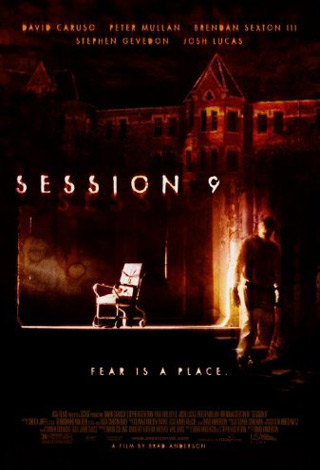
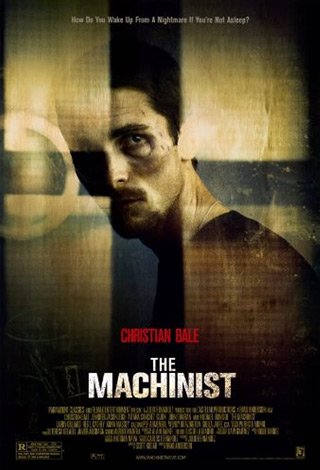
Cryptic Rock – Yes, but you have expanded your palette. You have worked in television as well as film. How would you compare working on the two platforms?
Brad Anderson – There are a lot of differences, but these days the difference between good film and good television isn’t as vast as it used to be. There is some great television out there… a lot of it surpasses many of the films that are out as well. As a filmmaker, I do enjoy both. They satisfy you in different ways. Television is usually a bit more fast-paced; you have to think on your toes a bit more as a director and you’re often telling stories and directing actors that you’ve never worked with. It is a bit more making it up as you go.
The films I do, I tend to be really passionate about them. They are real laborers of love projects to get them made, financed, and get them off the ground; Blood being one of them. You have a different kind of relationship with film, or at least I do. Television is a bit more of a bread-and-butter job to a certain degree in my career. The stuff I’ve done, or tried to do on television, are ones I try to do that are on par with the kind of movies I do; classy, elevated shows, not just usual stuff.
I like having a little bit of both, and I have done that as you said. In the end, I think of myself more as a filmmaker rather than a TV director, but I’m happy to do both.
Cryptic Rock – They are both good outlets to have. Your latest feature film is entitled Blood. How did this directing project come about for you?
Brad Anderson – I was given the script by my agent, as is often the case. I simply responded to it and really liked the fact that it wasn’t a really straightforward Horror story. In fact, if anything, it’s as much Horror as it is dark Psychological Drama. Also, it had a really emotional, heartbreaking component to it which I thought was a really interesting mix together with the darker Horror elements. It is about a mother struggling to do whatever is necessary to protect her children in the face of this horrific reality of her child transforming into something that she is not sure what. I thought the family crisis and drama element of the story was very unique. I responded to it and we were able to get Michelle Monaghan, who plays the mom in the movie, to read it and really respond as well. I’ve always wanted to work with Michelle; we had some other projects in the past that didn’t come together, so this just seemed like a really great opportunity.
So, you had a great actress, and a cool script, plus you have the wind behind you to get the financing to do it, all these things come together, and you’re off making a movie. In the end, it all starts with that first turn of the page to fade it. If you stick with it and like it, then you know you have something you want to do.
Cryptic Rock – Yes, and Michelle does a fantastic job with her role bringing everything to life. This film does have a heart-tugging element within it as a mother does what she can to protect her child. It is ultimately a Horror film. There is blood, yes, but does not have gore per se. What was it like bringing that all together as the director?
Brad Anderson – It was also a question of how far do we go with it. It was a question of… how much of a transformation do we want to see? The hope is to make it not so on the nose. We stayed away from the more obvious vampire film tropes like pointy teeth, flying as a bat, or sleeping in a coffin. It was approached as – What would it be if someone developed an addiction to blood as a medical reality? That is the way we entered into it, as opposed to a supernatural explanation. Yes, there is a supernatural element, but in the end, it was about the realism of how a parent would deal with a situation if her son suddenly said, I can’t survive unless you give me blood, not only that but human blood. How would the mother respond to that situation? That to me is what made it interesting.
Yes, there is blood in the movie, it is called Blood, but the gore element to me is always less is more in that department. I like all kinds of Horror movies, the gore ones are fun, but they are not really my schtick. So, we really didn’t want to go too far in that direction. In the movie, yes, there is blood drinking, and our blood was actually a combination of sugar water with red food coloring and some other things in it. (Laughs) We didn’t get too carried away with the gore element in the movie. It was more of the Psychological Horror that is interesting to me.
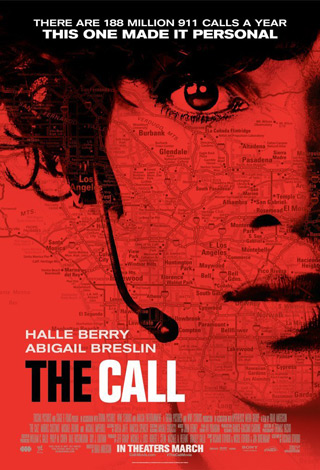
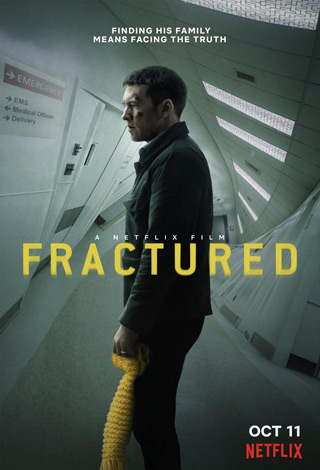
Cryptic Rock – Understood, and it works well with Blood. In Blood you have major cast members being children. What is it like directing children as opposed to adults?
Brad Anderson – It depends on the kids, right? Just like the same with adults… you can work with some very challenging adults. These kids were great in Blood. We did a thorough search to find them. They were natural talents, not a lot of experience, but you can tell when a kid has something there. They want you to direct them and give them guidance, whereas a lot more seasoned actors don’t need that.
It’s fun having kids on set. They are still wowed by the whole experience. They are not jaded, or like some people in the business who just basically dial it in. They want to do it, enjoy it, and have fun doing it. Having that life force in the process makes it more interesting and fun for everybody. It is not always easy, kids have shorter attention spans and they don’t always hit their marks. In the end, if you get good ones, it can be really fun.
Cryptic Rock – Right, and the cast all work excellently together on this film. The bottom line is the film puts you in an uncomfortable situation of how far you would go for your children. People will grab onto that.
Brad Anderson – That’s the hope. That’s what interested me about it, that dilemma. I know Michelle was similarly interested in playing that role because she’s a parent too. I’m a parent too, and we both know in our hearts that we would do anything to protect our children if they were in danger or sick. That sort of question is really at the heart of her story. What’s always fun is to keep pushing it, and see how far you can keep pushing it without turning into some sort of monster herself. By the end of it, she is doing some pretty monstrous things to keep her son alive. As a parent I ask myself, would I not do the same thing? Maybe I would. If you leave the movie with that question… that might be what we were aiming for. To question your own morality a little bit about how far you would go to protect someone you love if they are in danger. That to me is a really intriguing premise.
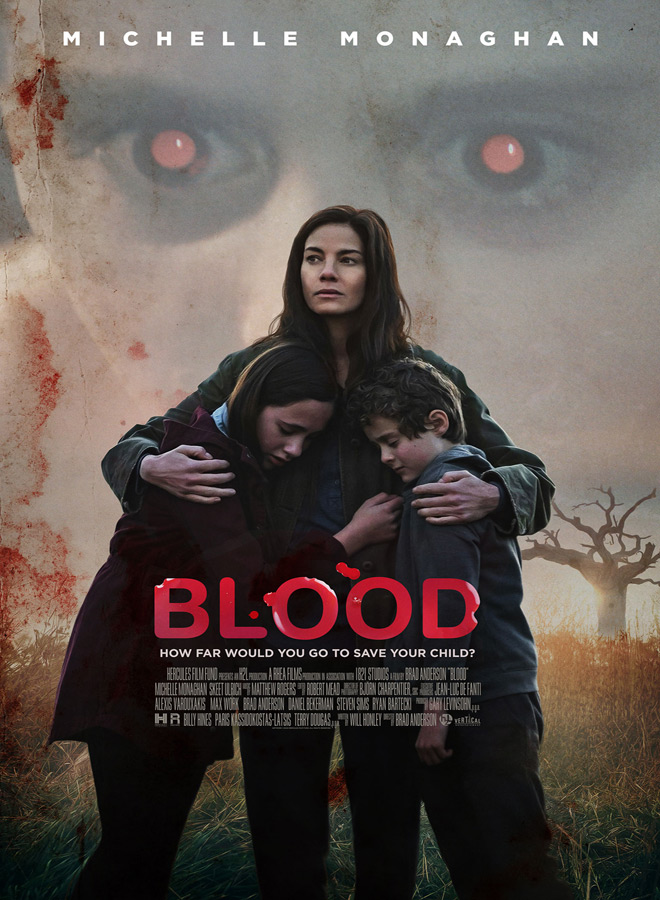
Cryptic Rock – It certainly is. Let’s quickly look back in time. Back in 2001 you wrote and directed Session 9. That film came out at a low point in Horror cinema, and that really stood out as a hidden gem. Still standing up today, give us a little background of Session 9.
Brad Anderson – That movie has its fans for sure. Before I did that movie, my first few films were Romantic Comedies and Drama… that is how I kind of broke into the business. I started moving my career in that direction, and I liked those types of movies, but I was always more interested in darker stories and darker themes.
Session 9 evolved out of my need to take a detour into another genre and try something different. At that time in the late ‘90s and early 2000s, the Horror genre was still really embedded in movies like Scream (1996) and I Know What You Did Last Summer (1997); mostly cheesy, teenage B-movie-like stories. We wanted to do something that was quite literally horrific, visceral, psychological, and really getting under your skin. Hence the reason we shot at an actual abandoned mental hospital. Creating that sort of tone was very important to me, I didn’t want to do something corny. We wrote a script and were able to get the financing to do it.
In some ways that was the detour I took into a darker palette and have continued to do since then with movies like The Machinist (2004), Blood, and others. It is just the kind of storytelling I enjoy. Session 9 maybe was the first movie that took me on that other kind of darker path. I appreciate that a lot of people dig the film. I think it has a certain timeless element to it. It’s not grounded in current politics or social norms, it is just about someone losing their mind… and that can happen to anyone, anywhere, at any point. That concept is timeless, and maybe that is why the film still holds up today.


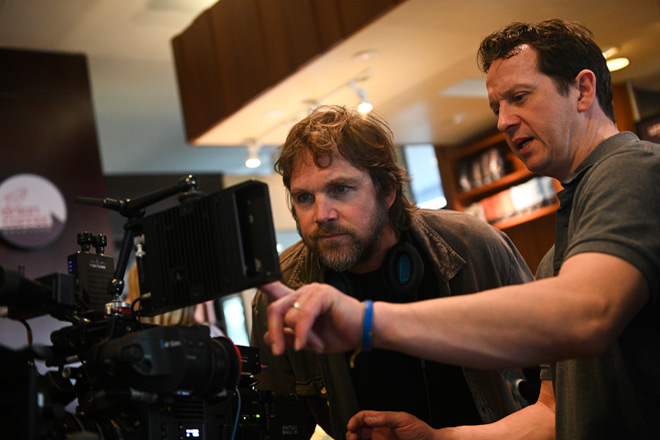
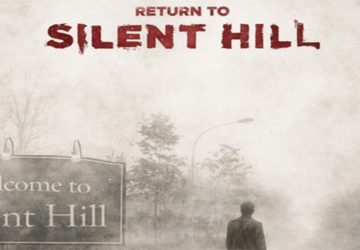
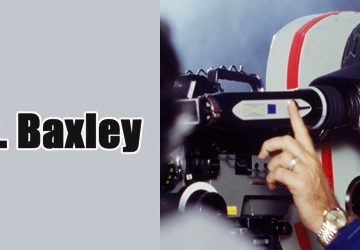


No comment